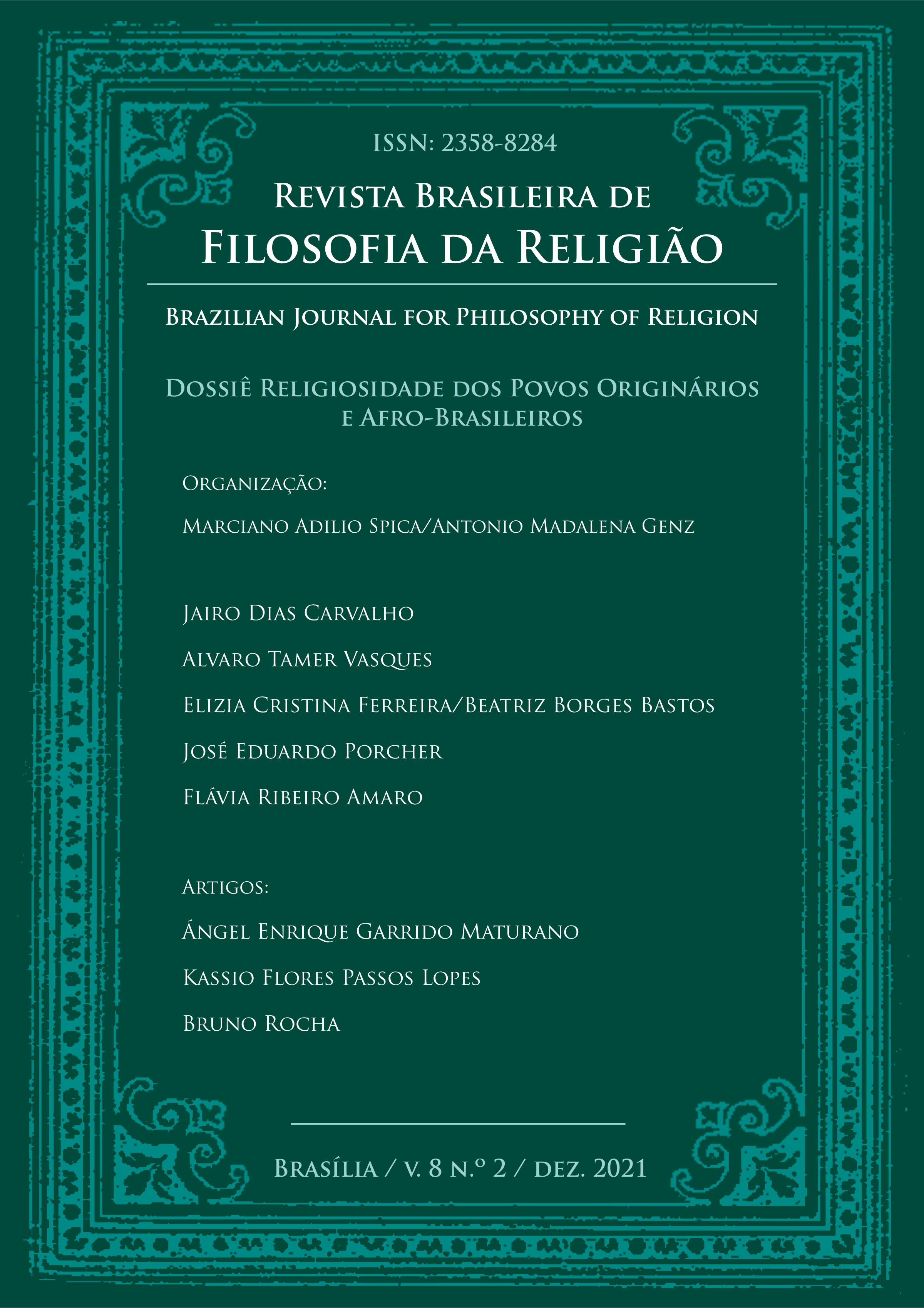HARTMANN, NIETZSCHE AND THE ANTICHRIST
DOI:
https://doi.org/10.26512/2358-82842021e39567Keywords:
Hartmann; Unconscious; Antichrist; SecularizationTransvaluation.Abstract
In this article we will raise the hypothesis that the book
The Antichrist, written by Nietzsche in 1888, can be understood as an
ironic fulfillment of the “prophecy” of Eduard von Hartmann, in his
book Philosophy of the unconscious (1869), about a secular era of
humanity where Christianity would be no more than a shadow. To
arrive at this statement, it is first necessary to go back to Hartmann's
Philosophy of the Unconscious and the way in which the term
Antichrist is used by him. Later, it should be noted how Nietzsche
himself read and quoted it in his writing On the usefulness and
disadvantage of history for life (1873) and in his other writings, until
finally his book entitled The Antichrist. As we have suggested, the
name "Antichrist" was therefore appropriate to title the book that
brought the transvaluation of all Christian values with which
Nietzsche believed to launch a deadly attack on Christianity and thus
enable the conditions for a cultural renewal in which the values of
Christendom were, in fact, surpassed.
Downloads
References
REFERÊNCIA BIBLIOGRÁFICA
BROBJER, Thomas H. Nietzsche’s Philosophical Context: An Intellectual Biography. Urbana-Chicago: University of Illinois Press, 2008.
JENSEN, Anthony K. An interpretation of Nietzsche’s On the uses and disadvantages of history for life. New York: Routledge, 2016.
HARTMANN, Eduard von. Philosophy of the unconscious: Speculative results according to the inductive method of physical Science, 1931. London: Routledge and Kegan Paul, 2014.
JENKINS, Philip. The next christendom: the coming of global Christianity. New York: Oxford University Press, 2011.
NIETZSCHE, Fiedrich. O Anticristo e ditirambos de Dionísio. São Paulo: Companhia das Letras, 2007.
______. Genealogia da moral: uma polêmica. São Paulo: Companhia das Letras, 2009.
______. Correspondência Volume I. (1850-1869) Trad. Luis Henrique de Santiago Guervós. Madrid: Editora Trotta, 2005.
______. Correspondência Volume II. (1869-1874). Trad. Luis Henrique de Santiago Guervós. Madrid: Editora Trotta, 2008
______. Correspondência Volume III. Trad. Luis Henrique de Santiago Guervós. Madrid: Editora Trotta, 2008
______. Correspondência Volume IV (1880 a 1884). Trad. Luis Henrique de Santiago Guervós. Madrid: Editora Trotta, 2010
______. Correspondência Volume V. (1885-1887) Trad. Luis Henrique de Santiago Guervós. Madrid: Editora Trotta, 2011
______. Correspondência Volume VI. (1887-1889). Trad. Luis Henrique de Santiago Guervós. Madrid: Editora Trotta, 2012.
______. Fragmentos Postumos. Vol I. (1869 – 1874). Edición española dirigida por Diego Sanchez Meca. Tradución, introdución y notas de Manuel Barrios y Jaime Aspiunza. Edición realizada bajo lós auspícios de la Sociedad Española de Estudios sobre Nietzsche (SEDEN). Editorial Tecnos, Madrid, 2007.
______. Fragmentos Postumos. Vol II. (1875 – 1882). Edición española dirigida por Diego Sanchez Meca. Tradución, introdución y notas de Manuel Barrios y Jaime Aspiunza. Edición realizada bajo lós auspícios de la Sociedad Española de Estudios sobre Nietzsche (SEDEN). Editorial Tecnos, Madrid, 2008.
______. Fragmentos Postumos. Vol III. (1882 – 1885). 2ª Ed. Edición española dirigida por Diego Sanchez Meca. Tradución, introdución y notas de Diego Sanchez Meca y Jesus Conill. (SEDEN). Editorial Tecnos, Madrid, 2010.
______. Fragmentos Postumos. Vol IV. (1885 – 1889). 2ª Ed. Edición española dirigida por Diego Sanchez Meca. Tradución, introdución y notas de Juan Luis Vermal y Juan B. Llinares. (SEDEN). Editorial Tecnos, Madrid, 2008.
______. Fragmentos póstumos: 1887-1889: volume VII. Tradução Marco Antônio Casanova. Rio de Janeiro: Forense Universitária, 2012.
______. Sobre a utilidade e a desvantagem da história para a vida. Segunda consideração extemporânea. Tradução. André Itaparica. São Paulo: Hedra, 2017.
PIPPIN, Robert B. Introductions to Nietzsche. Cambridge: University Press, 2012
VATTIMO, Gianni. Depois da cristandade: por um cristianismo não religioso. Rio de Janeiro: Recorde, 2004.
Downloads
Published
How to Cite
Issue
Section
License
Copyright (c) 2022 Brazilian Journal for Philosophy of Religion

This work is licensed under a Creative Commons Attribution 4.0 International License.

